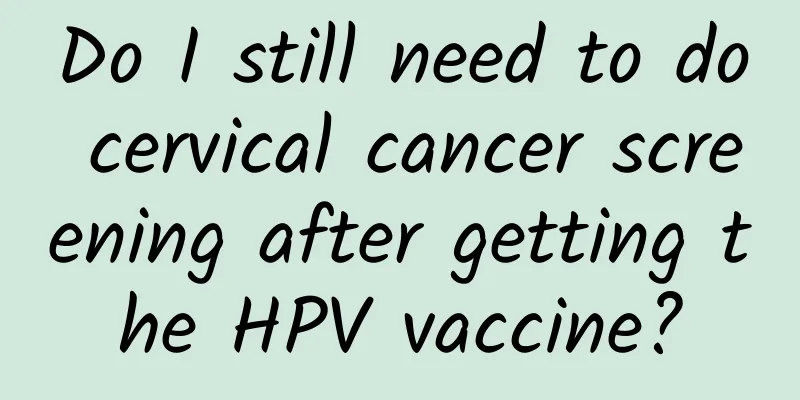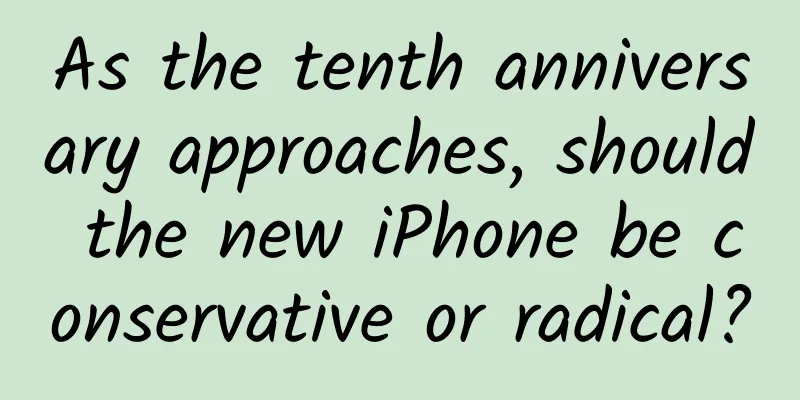Does eating sugar make people happy? Is eating sweets bad for the eyes? How true is this sweet rumor?

|
Added sugar, as one of the greatest discoveries of mankind, brings calories to humans, but also hides some health risks. Added sugar refers to additional free sugars, such as sucrose, white sugar, fructose, etc., and of course also includes foods and beverages containing these sugars. There are many rumors circulating online about added sugar: eating too much added sugar can cause cancer, children who eat sweets are more likely to have myopia, and sugar-free foods do not contain sugar and can be eaten at will... Are these rumors true or false? Let's read on↓ 01 Rumor: Eating added sugar can replenish energy and make people happy? Analyst: False. Eating added sugars may produce a short-term feeling of pleasure, but it may also increase the risk of depression. When sugar enters the body, it activates the pleasure and reward systems in the brain, giving people a sense of pleasure, but this feeling does not last. Studies have found that due to the influence of factors such as insulin secretion and energy metabolism caused by sugar intake, the body will not feel relaxed for a period of time after eating sugar, but will become more tired and the brain will become slower to react. Sugar will also consume B vitamins in the body, and the lack of vitamin B1, B6 and niacin will affect the function of the nervous system and the balance of neurotransmitters. In addition, foreign population tracking studies have also found that people who drink sugary drinks every day have a significantly increased risk of depression. Copyrighted stock images, no reproduction is authorized 02 Rumor: Eating sweets is bad for the eyes and will make children more prone to myopia? Analysis: False. Eating added sugar or sweets in moderation will not cause damage to your eyesight. The reason why diabetes affects vision is that long-term high blood sugar causes lesions in small arteries and capillaries throughout the body. The occlusion of retinal capillaries will lead to ischemia and hypoxia. The newly formed capillaries are too fragile and prone to spontaneous rupture and bleeding, which in turn causes vision loss. This is a complication of diabetes. For normal people, after consuming sugary foods, the body will quickly secrete insulin to lower blood sugar. The excess sugar will be stored in the liver and muscle tissue in the form of glycogen and released when needed. It will not cause damage to blood vessels and retina, nor will it induce myopia. However, consuming too much sweets is not recommended. 03 Rumor: Eating too much added sugar will cause diabetes? Analysis: Inaccurate. Eating too much added sugar does not equate to diabetes. Diabetes is a chronic, systemic, metabolic disease characterized by high blood sugar. It is caused by the body's own insulin secretion defect or insulin resistance, and is related to diet, genetics, autoimmunity, environment, and lifestyle. Excessive intake of added sugar may increase the burden on pancreatic function, resulting in unstable blood sugar control. At the same time, excessive intake of added sugar can also cause obesity, which increases the risk of insulin resistance. Despite this, there is no evidence to suggest a direct cause-and-effect relationship between excessive sugar intake and diabetes. 04 Rumor: Eating added sugar will make children hyperactive? Analysis: False. There is no necessary connection between sugar and ADHD, and there is no physiological evidence for the connection. ADHD, scientifically known as attention deficit hyperactivity disorder, is a syndrome that occurs in childhood and is characterized by obvious difficulty in concentration, short attention span, hyperactivity or impulsivity compared to children of the same age. Its causes include genetics, neurophysiological factors, mild brain damage, neurochemical factors, psychosocial factors and other factors, which do not include sugar. As early as 1995, a double-blind trial conducted abroad proved that eating sugar does not affect children's behavior and cognitive abilities. The transient increase in blood sugar caused by eating sugary foods may cause thirst, frequent urination, fatigue or irritability, but it will not cause ADHD. Some experts also believe that eating sugar may be part of the brain's reward mechanism, and children with ADHD may love to eat sugar, but there is no proof that eating sugar increases the risk of ADHD. Copyrighted stock images, no reproduction is authorized 05 Rumor: Sugar-free foods do not contain sugar, so you can eat them as much as you want? Analysis: False. Sugar-free food does not mean that it is really free of sugar, nor does it mean that it is free of energy. Sugar-free foods may also contain added sugar. According to the GB28050-2011 National Food Safety Standard "General Rules for Nutrition Labeling of Prepackaged Foods", the label "sugar-free or sugar-free" on a food label means that the sugar content per 100 grams or 100 milliliters of solid or liquid food is no more than 0.5 grams. This means that as long as the added sugar content in 300 milliliters of beverages does not exceed 1.5 grams, it can still be labeled as sugar-free. In addition, even if sugar-free foods do not contain sugar, other ingredients may contain sugar or energy. For example, the raw materials of sugar-free mooncakes include starch and fat. The former will be converted into glucose in the body, and the fat will also generate energy during the combustion process. Therefore, sugar-free foods cannot be eaten in unlimited quantities. 06 Rumor: Eating too much added sugar can cause cancer? Analysis: False. There is no definitive evidence linking sugar to cancer. Although studies have shown that excessive intake of sugary foods and drinks may increase the risk of pancreatic cancer and colon cancer, there is no definitive answer as to how much sugar is involved in this process and how long it should last. In addition, after evaluating the relationship between sugar intake and health, the World Health Organization believes that excessive intake of added sugar will increase the risk of obesity, which will increase the risk of various chronic diseases and cancer, but it cannot directly prove that there is a direct link between sugar and cancer. 07 Myth: Eating sugar is good for your brain? Analyst: False. Excessive intake of added sugars may affect brain function. Although glucose is the brain's main source of energy, consuming too much added sugar can raise blood sugar levels and reduce the activity of key neurons in the brain. Some studies have shown that long-term consumption of large amounts of added sugar can cause the brain volume to shrink, reduce thinking and memory abilities, make reactions slower, and make it difficult to concentrate. In addition, consuming fructose will reduce the body's sensitivity to insulin, and insulin will inhibit the normal activity of brain cells in the brain, significantly reducing the vitality of brain nerve cells. Copyrighted stock images, no reproduction is authorized 08 Rumor: Eating too much added sugar can cause leukemia? Analysis: False. There is no relationship between eating added sugars and developing leukemia. The cause of leukemia is not clear. The possible factors that have been confirmed include viruses, radiation, chemical factors and genetic factors. The claims circulating on the Internet that drinking sugary drinks or consuming sugar substitutes can cause leukemia are all misunderstandings. So far, there is no clinical evidence to show that eating sugar is related to the occurrence and progression of leukemia. How to eat sugar scientifically and healthily? To eat sugar scientifically, we must recognize the benefits that sugar brings to the body, but also understand the harm of excessive sugar intake. There is no need to stop eating because of fear, as long as it is controlled within a reasonable range. Among them, controlling the total amount is a prerequisite. According to the "Dietary Guidelines for Chinese Residents (2022)", the daily sugar intake should not exceed 50 grams, and it is best to control it below 25 grams. In addition, for special groups such as children, pregnant women, the elderly and those with abnormal blood sugar, the frequency of eating sugary foods should be appropriately reduced. If you like sweet foods, you can replace them with natural sugary foods, such as fruits, honey, etc. in conclusion The pleasure from eating sugar is short-lived, and people who drink sugary drinks every day will increase their risk of depression; for normal people, eating sweets in moderation will not damage eyesight; sugar-free foods may contain added sugar, and their raw materials may also contain sugar, so they cannot be eaten casually; eating too much added sugar may reduce brain function; there is no direct causal relationship between sugar and diabetes, cancer, ADHD, and leukemia. Author: Zhang Yu, researcher at the Chinese Center for Disease Control and Prevention, doctoral and master's degree supervisor Review | Dou Pan, deputy chief physician, Peking University First Hospital The article is produced by "Science Refutes Facts" (ID: Science_Facts). Please indicate the source when reprinting. The cover image and images within this article are from the copyright gallery. Reprinting and quoting them may lead to copyright disputes. |
>>: World No Tobacco Day丨When you smoke a cigarette, your body begins to...
Recommend
Speed: 22,530 km/h The spacecraft deliberately hit an asteroid Humanity's first asteroid defense test successfully implemented a "kinetic collision"
In science fiction movies, there is often an &quo...
Information flow advertising | Learn the correct method to increase exposure!
My friends, I believe many of you are worried abo...
Mercedes-Benz to compete in Formula E in 2018
Foreign media reports Mercedes-Benz is joining th...
How to make a dying community forum popular again within 4 months?
Regarding how to operate a community, the author ...
Java Thread Interview Questions
[[147712]] Below are some Java thread-related int...
How much does it cost to customize women’s clothing in Quzhou through the mini program?
The main factors affecting the price of mini prog...
8 lessons to help you become an expert in writing official documents
Live broadcast course of Qianliao’s old secretary:...
If it doesn’t look like the Land Rover Aurora or the Landwind X7, will anyone still buy it?
Plagiarism and imitation are the inevitable paths...
Does the beginning of winter mean winter? Does it mean winter for you? This article will help you figure it out.
Today is the Beginning of Winter. Does this mean ...
5 ways to master social media operations!
It is easy to build a good community, but it is n...
13 App Promotion Methods and Channels
Method 1: App Store /App Recommendation Website A...
The strongest cold front since the beginning of autumn is coming! Cold wave warnings issued in many places →
Starting today (18th), the area north of the Yang...
Without channel traffic tracking and analysis, no matter how much money you spend on APP promotion, it will be in vain!
Local promotion is an effective way for App to ac...
Microsoft reminds users: Cortana on iOS and Android will be discontinued at the end of this month
[[389347]] The Cortana app for mobile is about to...
Retweets exceeded one million in 6 hours, how does Alipay conduct social marketing?
During this National Day, Alipay did something bi...









